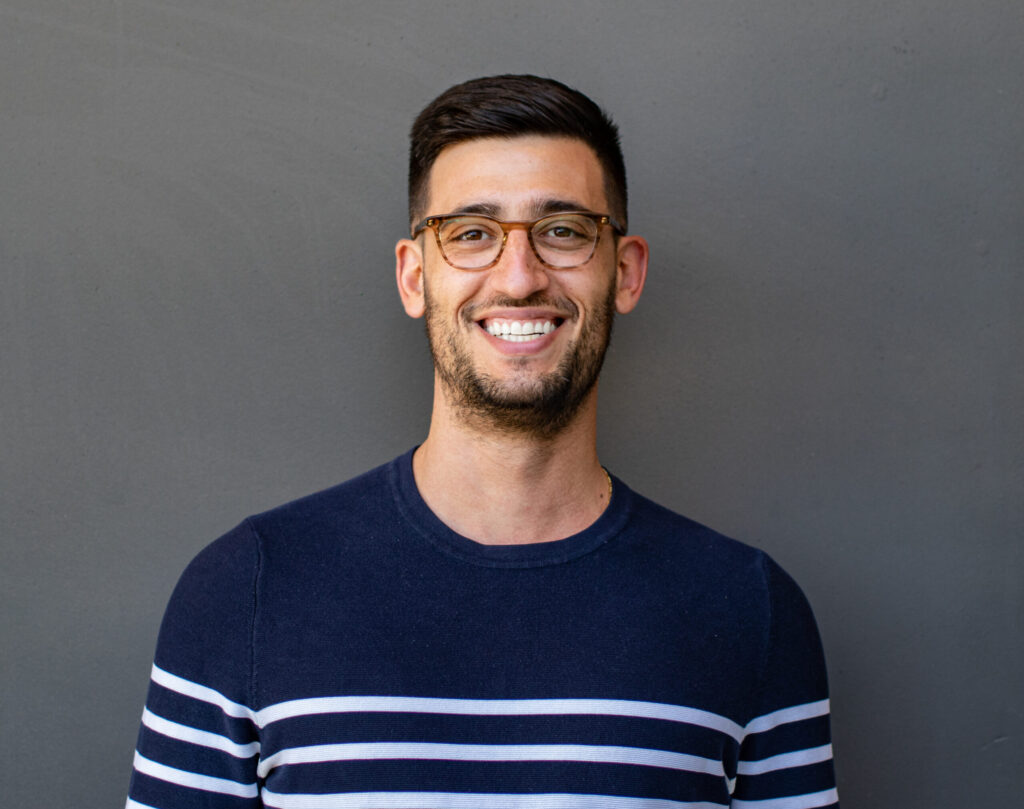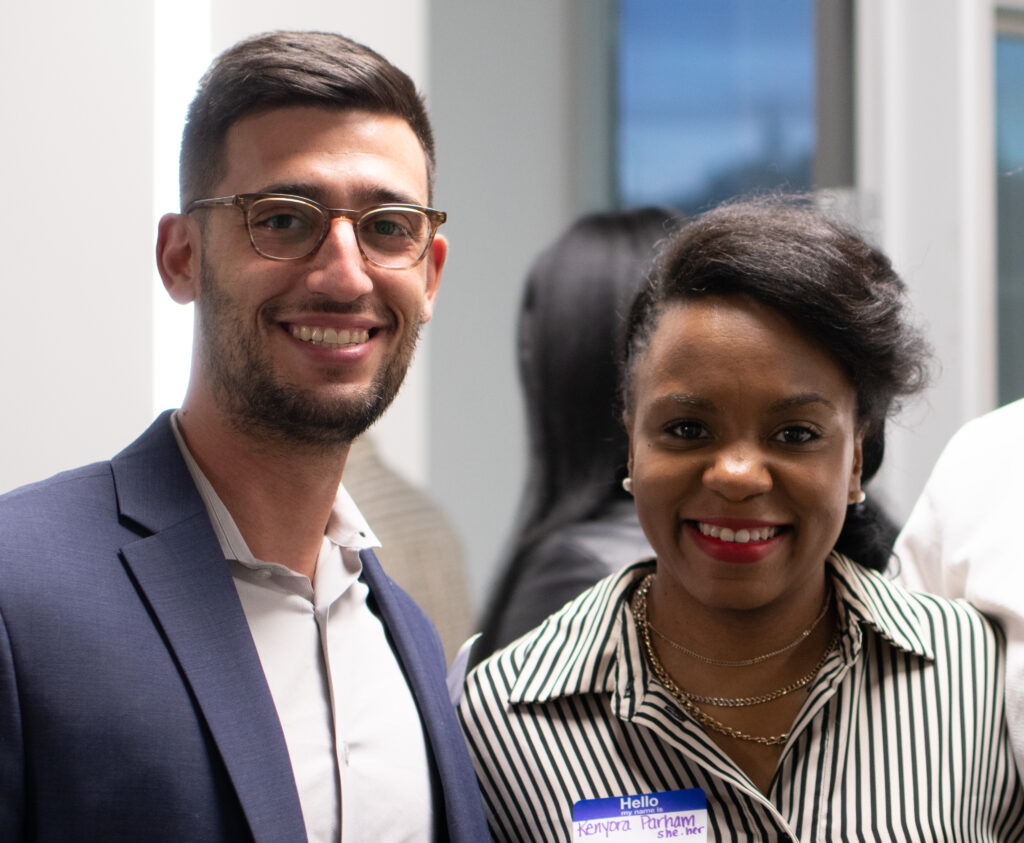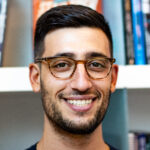
Dan Egol is a winner of the Roddenberry Fellowship, a year-long program designed for activists trying to make the world a more equitable place. As the co-founder and executive director of IDEAS Generation, Dan seeks to connect a community of next-generation leaders, practitioners and advocates advancing IDEAS: Inclusion, Diversity, Equity, Access, and Social Justice in communities and organizations.
The Roddenberry Fellowship supports and connects leaders of early-stage, social-impact organizations to move us all closer to Star Trek founder Gene Roddenberry’s vision of a diverse, optimistic, inclusive world. The Fellowship provides financial support and coaching to qualifying organizations and numerous opportunities to connect with other changemakers, during the Fellowship year and beyond.
In this interview, Dan discusses his experience being a Roddenberry Fellow, some advice for aspiring fellows and explains how the Roddenberry Fellowship allowed him to continue growing IDEAS Generation and support the launch of the IDEAS Fellowship which promotes skill-building, mentorship, and professional experience in IDEAS work.
Tell us about your background and professional journey. What led you to the Roddenberry Fellowship?
I grew up in a multicultural home with strong ties to family in both Cuba and Israel as well as part of the LGBTQ+ community. I loved the infusion of different languages, cuisines, styles, and ways of being in the world that was present in my life. However, I didn’t often see that same appreciation for difference reflected back in the broader world. In fact, I directly experienced the opposite after traveling to Cuba for the first time in 2004. In Havana, I got to meet relatives who I’d only known in stories and photographs and experience a nation that was drastically different from the one I saw portrayed in American media. Shortly after returning to the US, the Bush Administration rescinded family visas in an effort to double down on the Cuban Embargo. The forced separation from relatives and friends was a turning point for me because our policy seemed so rooted in a fear of a different, mischaracterized political system.
I went to college determined to return to Cuba as a student (because there was a travel loophole for educational visas) and to dedicate my academic focus to better understanding international relations. While at Middlebury College, I held three formative work-study jobs that both complemented my degree in Political Science and set me on my current career trajectory. At school, I worked all four years at the college admissions office where I learned about selection processes and institutional gatekeeping practices. During my sophomore year, I began providing learning accommodations and related support to students with disabilities at the Americans with Disabilities Act office on campus. And thirdly, I did research for a professor who ran an academic center examining questions of race and ethnicity.
Collectively, my academic and pre-professional experiences led me to full-time employment at Cook Ross, a diversity, equity, and inclusion (DEI) consulting firm, and concurrent part-time work at the Atlantic Philanthropies where I participated in Cuban-American reconciliation efforts. Over the course of five years at Cook Ross I had the privilege of being exposed to various organizations across the country who were all trying to build more inclusive cultures and have more equitable impacts in their programs and services.
While at Cook Ross, I met two colleagues with whom I would co-found IDEAS Generation – Minjon Tholen and Hannah Mack. At the time, we were the three Millennials on staff and noticed how we’d go to conferences where senior leaders in the field, like the firm’s Founder, Howard Ross, would know many other practitioners in the industry. However, as members of younger generations, we knew tons of friends and peers who cared deeply about DEI work, yet were nowhere to be found in industry convenings or on our client projects. As such, we decided to create IDEAS Generation to connect, support, and elevate the next generation of leaders and communities advancing IDEAS: Inclusion, Diversity, Equity, Access, and Social Justice.
Can you describe what a week in the life of a Roddenberry Fellow is like? How did this opportunity allow you to advance your career and expand your professional network?
Being a Roddenberry Fellow is a privilege that words cannot fully capture. Beyond the flexible financial support, affirming and instructive professional coaching, and in-person retreats, admission into this community of inspiring and supportive change-makers provides the emotional and personal support to take my work to the next level. Though there is no ‘typical’ week – especially because this Fellowship has in-person, virtual, and asynchronous components – the weeklong orientation program, where I got to meet other members of the 2023 cohort and program alums, unveiled the numerous possibilities of this opportunity. Access to a network of dozens of social justice change agents also brings with it access to their extended networks, knowledge bases, and resources – all of which are needed (and appreciated) if we are to bring our collective impact to scale. Resources I’d previously struggled to locate or identify were magically sent to my inbox after sharing inquiries about them in our Fellowship Slack platform. Doors to funders and industry leaders that had, until the Fellowship, remained shut were now beginning to open. I find myself both buoyed by the conversations I have with peers in the program and grateful for all the time and effort the Roddenberry Team invests in our success.

The Roddenberry Fellowship is designed to encourage and support activists, specifically in the areas of Civil Rights, Environmental Protection, Immigration & Refugee Rights, LGBTQIA & Women’s Rights, and Health & Wellness. Tell us more about your project. Can you talk about which areas you were drawn to and why? Were there ways in which you found these areas overlapped?
Our initiative is a cohort-based fellowship program that bridges our existing community-building efforts, original content, mentorship networks, leadership development programs, and client partnerships into a single, mission-scaling and field-building opportunity for both organizational practitioners of IDEAS: Inclusion, Diversity, Equity, Access, and Social Justice and for nonprofits/social enterprises. This multi-year endeavor will incubate and accelerate the next generation of leaders’ capacity to advance IDEAS through targeted skill-building, mentorship, compensated experiential learning, and professional placement in nonprofits and social impact organizations.
Although The Roddenberry Fellowship is designed for folks working in particular issue areas, I appreciate that the Roddenberry team is open to looking at these various topics broadly and to their intersections. IDEAS Generation, which is starting its own fellowship program with the support of the Roddenberry Fellowship, operates at the intersection of culture change, leadership development, workforce development, and IDEAS. Because we are not single-issue, single-demographic, or place-based, we have struggled to fit into the more traditional funding portfolios of other foundations. Funding from the Roddenberry Fellowship, therefore, allows us to develop a program to build the pipeline of leaders who can address issues that span these issue areas and address their intersections to ensure that people can thrive no matter where they live or work.
What advice do you have for others applying for the Roddenberry Fellowship?
Be clear about why and how this Fellowship experience can help you and your organization where it is right now. Despite being hesitant to disclose some of the challenges IDEAS Generation was facing (for fear that they may disqualify us from consideration), I found that being honest about our struggles actually made us stand out because it allowed Roddenberry to have a clearer picture of what support for us would actually entail. Because we’ve not been successful in attracting more traditional philanthropic funding, we were able to make the case for why this Fellowship opportunity would help validate that our model is worth investment and that philanthropy should be engaged with IDEAS efforts.
Moreover, you should be able to distill the problem you are trying to solve and how your proposed solution fits into the broader landscape of solutions out there. The field of IDEAS/DEI is getting more crowded and varied by the day so it was critical for us to convey an understanding of the broader context and how our approach was distinct.
Lastly, although the Fellowship is awarded to a single leader, enroll your team & community in the application process. Members of the IDEAS Generation staff contributed by highlighting what they felt was most important to include in our written responses; Board Members edited and provided feedback. In the optional video round, rather than hear from me (which Roddenberry was already throughout the application), each member of our small but mighty team was able to share a little bit about our application so that their voices were also part of the formal application. I’m honored that I was selected as a Roddenberry Fellow, but I wouldn’t be here without our team. So we were intentional about interweaving their voices throughout and ensuring the final application was reflective of our collective efforts as an organization.
Interested to apply for these fellowships? Bookmark the Roddenberry Fellowship and the IDEAS Fellowship to your ProFellow account.

© 2023 ProFellow, LLC, all rights reserved.